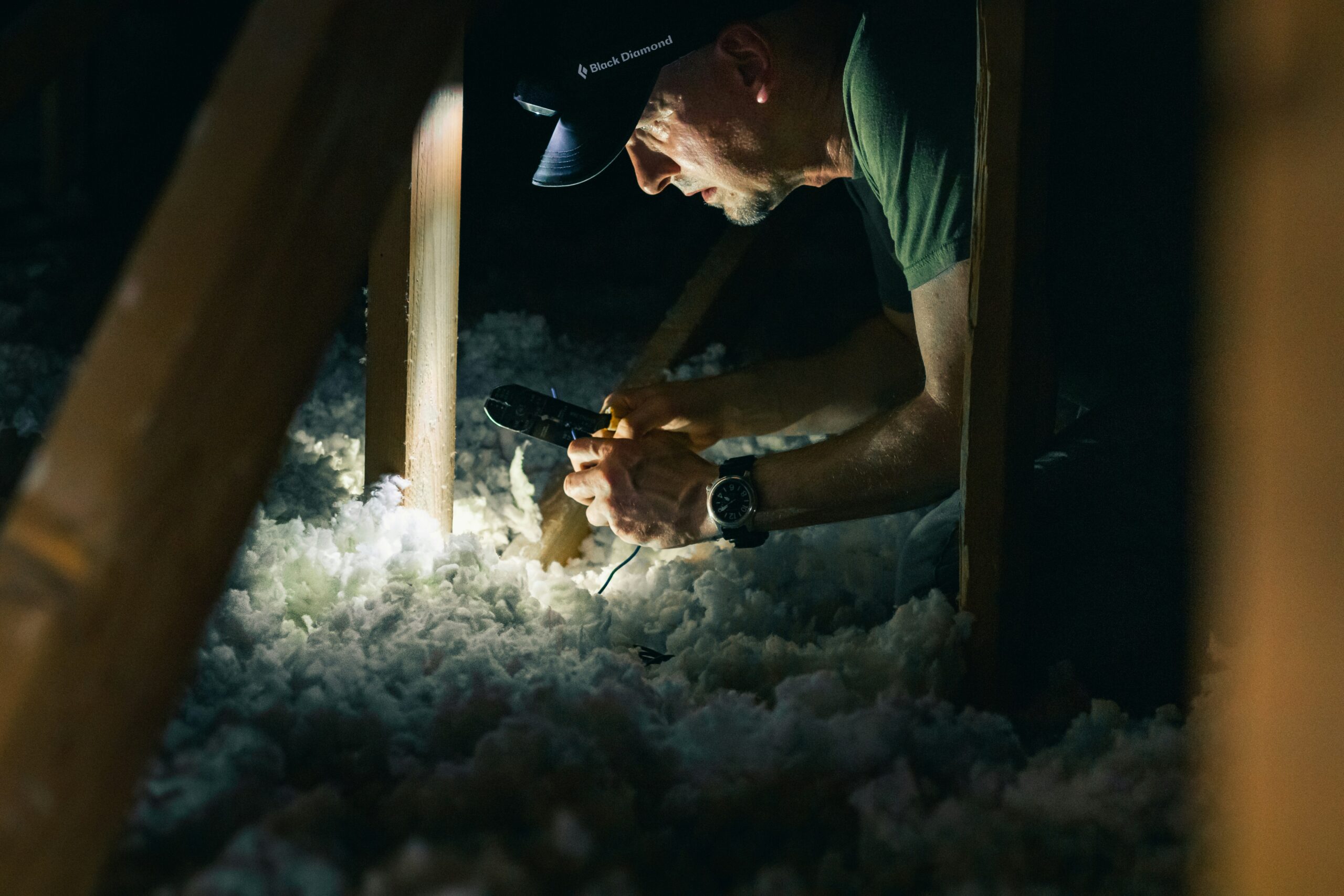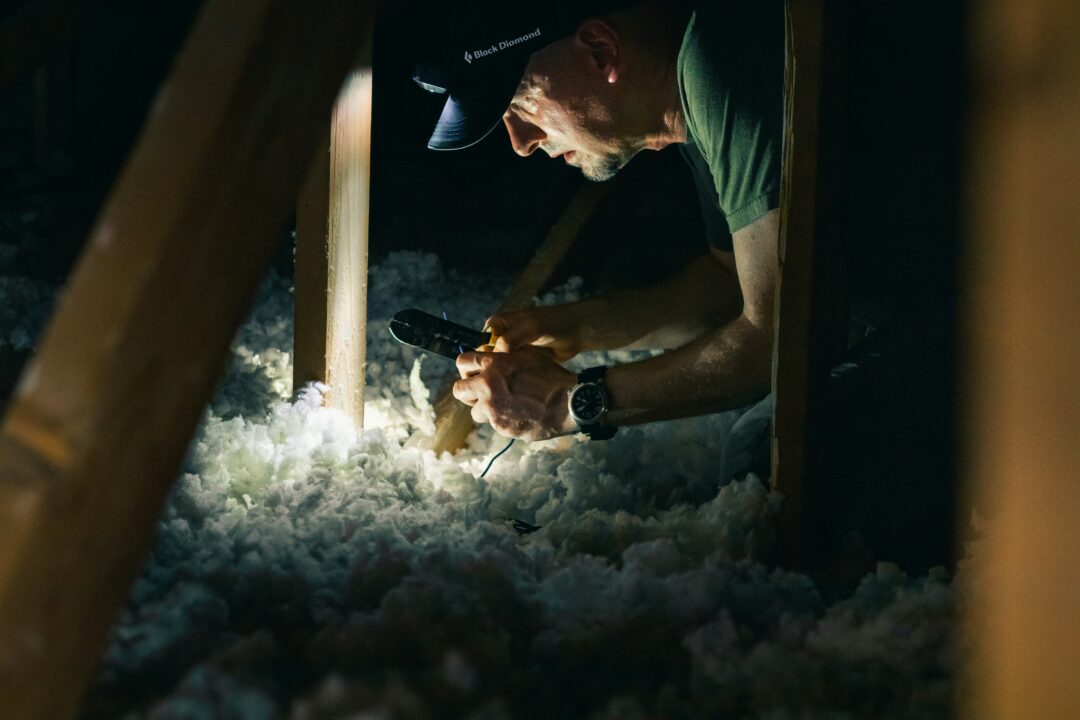
Photo by Greg Rosenke on Unsplash
Energy efficiency is not just a buzzword; it’s a necessity in today’s world. Not only does it help reduce your carbon footprint, but it also saves you money on your energy bills. Making your home more energy efficient doesn’t have to be complicated or expensive. By following these straightforward methods, you can make significant improvements to your home’s energy efficiency.
Insulate Your Home Properly
One of the most effective ways to improve your home’s energy efficiency is by ensuring that it’s well insulated. Poor insulation allows heat to escape during the winter and lets in unwanted warmth during the summer, forcing your heating and cooling systems to work harder. This results in higher energy consumption and increased costs.
To begin, check your loft and wall insulation. Adding extra insulation can make a big difference in maintaining a comfortable temperature indoors. Double-glazed windows and draught-proofing around doors and windows are also essential in preventing heat loss.
Upgrade to Energy-Efficient Appliances
Old appliances can be energy guzzlers. When it’s time to replace them, opt for energy-efficient models. Look for appliances with high energy ratings; in the UK, this is usually an A+++ rating. These appliances use less energy to perform the same tasks, which can significantly reduce your household energy consumption.
For instance, energy-efficient refrigerators, washing machines, and dishwashers are designed to use less electricity and water. LED light bulbs are another small but impactful upgrade. They consume up to 80% less energy than traditional incandescent bulbs and last much longer.
Install a Smart Thermostat
A smart thermostat is a modern solution for controlling your home’s temperature efficiently. These devices learn your schedule and adjust the heating and cooling of your home accordingly, ensuring that energy is not wasted when you’re not around.
You can control a smart thermostat remotely via your smartphone, allowing you to adjust your home’s temperature even when you’re out. Some models can even detect when you’re nearing home and start heating or cooling accordingly.
Seal Air Leaks
Air leaks in your home can significantly reduce its energy efficiency. Gaps around windows, doors, and even in the attic or basement can let in drafts, making it harder to keep your home warm in winter and cool in summer.
To address this, you can use weatherstripping and caulk to seal these gaps. Pay particular attention to areas where different building materials meet, such as corners, chimneys, and where pipes or wires penetrate walls. A well-sealed home is easier and cheaper to heat and cool, making this a simple yet effective way to enhance energy efficiency.
Use Renewable Energy Sources
If you’re serious about making your home energy efficient, consider investing in renewable energy sources. Solar panels are an increasingly popular option in the UK. While the initial investment can be high, solar panels can greatly reduce your reliance on the grid and even allow you to sell excess energy back to the power company.
Another option is to consider a heat pump. Air source or ground source heat pumps are efficient alternatives to traditional heating systems. They work by extracting heat from the air or ground outside and transferring it into your home.
Be Mindful of Water Usage
Reducing your water usage can also contribute to your home’s energy efficiency, especially when it comes to heating water. Install a water-efficient showerhead and fix any leaks in your plumbing to prevent wasting hot water.
Using cold water for washing clothes when possible and insulating your water heater and pipes can also make a difference. Additionally, consider installing a water heater timer or using a tankless water heater, which heats water only when you need it.
Optimise Your Heating and Cooling Systems
Keeping your heating and cooling systems in top condition ensures they run efficiently. Regular maintenance, such as cleaning or replacing filters and servicing your boiler, can help these systems operate at their best. Investing in new gas boilers if your current boiler is getting old is one of the best ways to improve the warmth and comfort of your home, as well as being a great way to add value to a property.
Modern boilers are far more energy-efficient than older models and can make a noticeable difference in your energy consumption. Also, don’t forget to bleed your radiators regularly.
Adopt Energy-Efficient Habits
Small changes in your daily habits can have a big impact on your home’s energy efficiency. Simple things like turning off lights when you leave a room, unplugging appliances when not in use, and using energy-saving settings on your devices all contribute to lower energy consumption.
Another habit to adopt is making the most of natural light during the day instead of relying on artificial lighting.
Install Energy-Efficient Windows
If your windows are old and draughty, replacing them with energy-efficient ones can make a significant difference in your home’s energy performance. Double or triple glazing reduces heat loss and helps maintain a consistent indoor temperature.
Energy-efficient windows not only reduce your energy bills but also improve your comfort by reducing cold spots and condensation. They also help reduce noise from outside, providing a quieter living environment.

